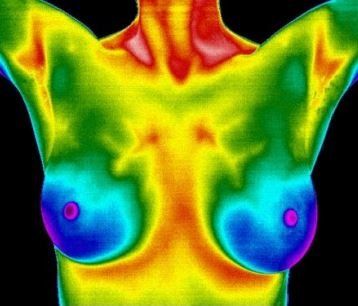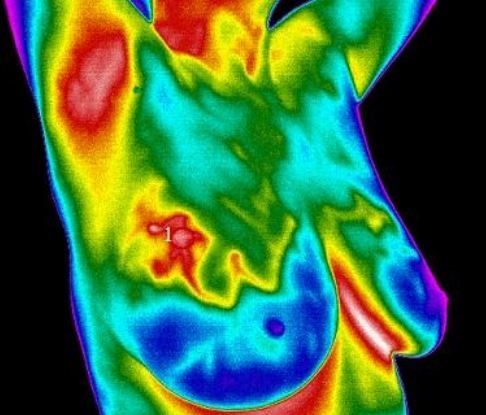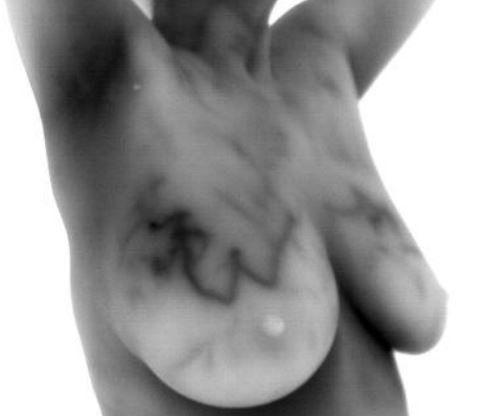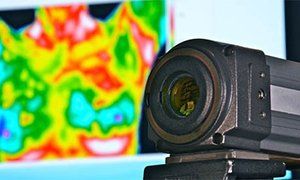Breast Thermography
Breast Thermography
Breast thermography is a non-invasive radiation-free, and contact-free touch-free imaging technology that has been FDA 510(k) cleared since 1982 as an adjunctive screening tool to aid in the detection of breast cancer. This technology has been used for decades to identify physiological changes of the breasts. It is safe and effective for women of all ages and is particularly valuable for those with dense breast tissue-a condition that affects up to 60% of women.
While mammography remains a primary screening method, its accuracy significantly decreases in women with dense breasts. Research shows is most effective in detecting abnormalities in non-dense tissue, highlighting the need for complementary screening methods like thermography.
Thermography provides valuable insight for women of all ages, including younger women who may not yet qualify for mammography. Breast cancer tends to be more aggressive in women under 45, and while less common, this age group still accounts for approximately 15% of all breast cancer cases. Incorporating thermography into regular breast health routine, offers a safe, proactive screening option during these early years when other imaging guidelines may not apply.
The principle behind breast thermography is based on on detecting abnormal blood vessel activity. Cancer cells require an increased supply of nutrients, triggering the growth of new blood vessels in a process call neoangiogenesis. This increased blood flow creates subtle temperature variations in the tissue, which can be detected using a high-resolution medical infrared camera.
These temperature differences may be among the earliest indicators of physiological changes or potential abnormalities. Thermography's ultra-sensitive imaging captures and analyzes these patterns, providing a detailed thermal map of the breast.
Traditional breast cancer detection relies on physical exams and mammography. While valuable, this approach may not be enough on its own. Since breast cancer prevention is still not a reality, early detection remains the best defense. Thermography offers a non-invasive method to enhance early screening efforts and fills an important gap for younger women who may not otherwise have access to routine imaging.
Adding breast thermography to your wellness routine empowers you with more information and a broader view of your breast health.



